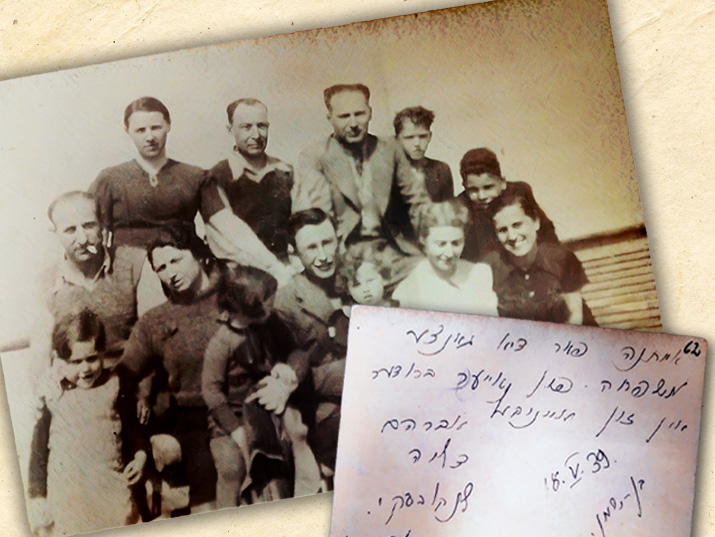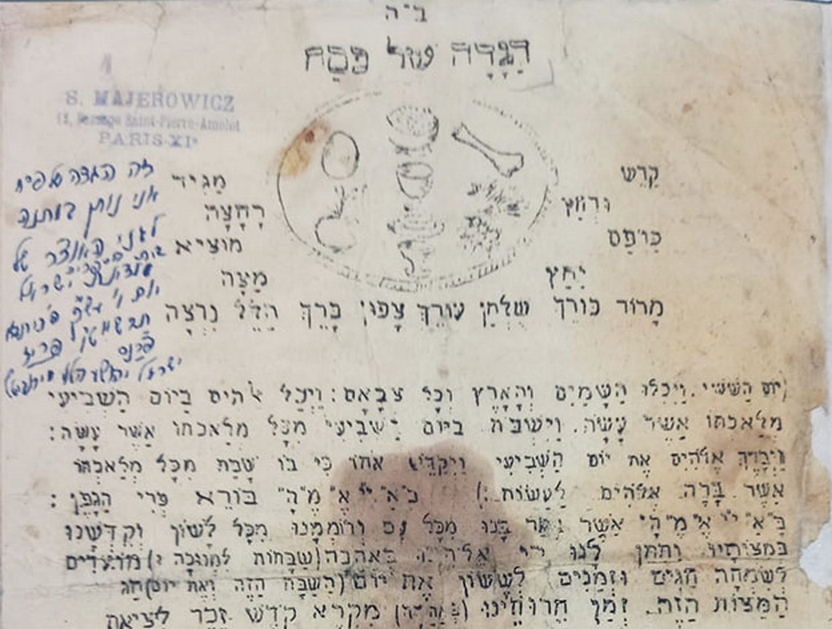A: Eliahu was born in Jerusalem in 1900 and joined his mother in Alexandria in 1921. He was asked to direct an elementary Jewish school "Shevet Achim" founded by Avraham Avikazur (?) and Ali Saroussi and other prominent Jews. After a few months Eliahu resigned and taught at another Jewish school founded by Yitzhak Charoush. From there he went to a new school "Hatiqvah" founded by Mordechai Asraf and Mr. Chassin and directed by Ovadia Machras, a staunch Zionist, who was active also outside the school. The school comprised about 250 boys and girls who got 8 hours of Hebrew per week. Other subjects were taught in French. Eliahu talks about the foundation of a new secondary school "Lycee" because in the existing school "Freres" a teacher had made a blood libel claim against the Jews. Eliahu was employed by the new school and worked there from 1925 till 1939. He mentions the names of committee members and of the Christian French directors. He explains in great detail the difficulties facing his teaching - too few lessons per week, pupils from other schools joining who had no knowledge of Hebrew and some of whom did not want to learn Hebrew. It was up to the teacher to insist on pupils learning Hebrew, members of the Committee did not force the pupils. Although they were not anti-Zionist, they were not Zionists, except for Marco Nadler. Eliahu taught also Bible, Jewish history and the geography of Eretz Yisrael, as well as some prayers, although the school was secular. (The continuation of the interview was not written down.) ; B: He again describes the difficulties he had with the School Committee which resulted in his founding, in 1940, a new school "Renaissance", in which he could teach also religion. He describes in detail the assistance he received for the establishment of the school, the aims he followed when formulating the curriculum, etc. This school was approved by the Ministry of Education and lasted until 1946. 6 hours weekly were allotted to the study of Hebrew, and in addition the pupils prayed Mincha and Ma'ariv in the synagogue of the school and learned how to put tefillin and how to hold a seder. General subjects were taught in French by a French teacher. An official of the Ministry supervised the teaching of Arabic. Pupils were prepared for immigration to Palestine under the pretext of being scouts. They learned to love Palestine, their Jewish identity and religious faith were strengthened. Eliahu mentions the names of other teachers of Hebrew in Egypt who could not meet the needs. Eliahu asked Brith Ivrith Olamit to send teachers, but they had no one to send. There was no cooperation or consultation between the teachers. Members of the Jewish community in Alexandria were pro-nationalism, and for strengthening Judaism, and favoured the study of Hebrew. This fact is evident in their taking their children out of Christian schools and sending them to the Jewish schools. Eliahu left Alexandria in 1946 to avoid his arrest and that of his family. He handed over his school to Dr. Ventura. ; Asked about other teachers of Hebrew in Egypt, Eliahu mentions Yonah Perlmutter who taught the girls, while he himself taught the boys; also two qualified teachers who worked in the school of the community, and other local teachers. There was no cooperation between the teachers. He describes the Alexandria Jewish community: on Shabbath the "Green" synagogue was full, the Jews observed traditions, they helped Jews coming from abroad. Most of them were well-to-do. Before going to work on Shabbath, they would first pray in the synagogue. Most of them were of Moroccan, Iraqi or Lybian origin, who integrated well and became well-known merchants. They built a spacious community building and the magnificent"Eliahu Hanavi" synagogue. There were no distinctions between the different ethnic groups. Mainly because these traditional Jews sent their children to public schools, in the early 1930s, the second generation could no longer read the Hebrew prayers and distanced themselves from Judaism and Jewish nationalism. ; Eliahu then talks about the rabbis, expressing his especial esteem for Rabbi de la Pergola who spoke Italian, and praising Rabbi David Parto for his outstanding sermons - also in Italian - which many non-Jews came to hear. He had studied in Italy and needed a qualified Av Beit Din in order to judge. After his resignation, in 1938, he became Chief Rabbi of Rome, and Rabbi Moshe Ventura replaced him. Rabbi Parto was a Zionist and used every opportunity to spread the Zionist cause. He helped found a teachers seminary in Rhodes and sent there teachers from Alexandria who returned as rabbis. Rabbi de la Pergola was a Zionist too, but did not openly try to convince others. Eliahu describes Rabbi Ventura as being so active for the Zionist cause that the Egyptian authorities had doubts as to whether he should work in Egypt. In Eliahu's opinion he was brilliant, spoke Hebrew fluently and knew the Jewish scripts as no other. He worked hard in cooperation with the Jewish community, founded the "Rambam" school to teach Torah and sciences. Eliahu then talks at length about the Chief Rabbi of Egypt and Sudan, Rabbi Nachum Effendi, who was a Zionist, but could not openly declare it because of his position.
| Title |
Egyptian Jewry and Zionism. |
|---|---|
| Additional Titles |
יהודי מצרים והציונות |
| Contributors |
Matalon, Avraham OHD (interviewer) מטלון, אברהם OHD (מראיין) צרום, אליהו OHD (מרואיין) המדור לתיעוד בעל פה של מכון המחקר ליהדות זמננו ע"ש אברהם הרמן באוניברסיטה העברית בירושלים (בעלים נוכחיים) |
| Creation Date |
1969 |
| Notes |
המדור לתיעוד בעל פה של מכון המחקר ליהדות זמננו ע"ש אברהם הרמן באוניברסיטה העברית בירושלים (61)13 |
| Additional Place |
May 11 1969 (interview B). |
| Extent |
24 p. Playing time: 02:29:54 |
| Language |
Hebrew |
| Credits |
המדור לתיעוד בעל פה של מכון המחקר ליהדות זמננו ע"ש אברהם הרמן באוניברסיטה העברית בירושלים |
| National Library system number |
990044195210205171 |
When using this material, please acknowledge the source of the material as follows:
המדור לתיעוד בעל פה של מכון המחקר ליהדות זמננו ע"ש אברהם הרמן באוניברסיטה העברית בירושלים
תנאי השימוש:
For research, study and teaching
You may copy and use the item for personal study, teaching and research purposes only.
You may copy and also use the item for commercial teaching and research purposes.
You must credit the creator(s) with every use of the item.
It is prohibited to distort or change the work in any way that will damage the integrity of or defame the creator.
There is no need to contact the National Library for permission to use the item for the purposes of personal study, teaching and research.
Any use other than for personal study, teaching and research, is conditional upon permission from the copyright owner of the item and/or the owner of the collection. No additional permission from the National Library is required.
You may contact the National Library for copyright owner/collection owner contact information by Inquiry for Copyright form.
Additional information:
The item is subject to copyright and/or contractual terms of use.
Terms of use were determined in an agreement signed by the National Library.
If you believe that there is an error in the information above, or in case of any concern of copyright infringement in connection with this item, please contact us using the Inquiry for Copyright form.
MARC RECORDS
Have more information? Found a mistake?

 Sign in with Google
Sign in with Google
 Sign in with Facebook
Sign in with Facebook



